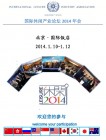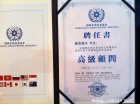If anybody still has “questions” on China’s lousy GPA (Government Procurement Agreement – under WTO) proposals, see the article of China Daily. (Good luck to download it as China Daily website is hopelessly messed up).
So, we have the “new” figure for Government Procurement in China:
“China’s government procurement amounted to 1.4 trillion yuan ($230 billion) in 2012, an increase of 23.3% from 2011.”
And let’s all be happy because, hey, the EU companies might even sell some cars:
“The Chinese government procurement list shows it has been buying from joint ventures and foreign-invested enterprises. Government procurement goods include Buick, Passat and Santana vehicles.”
Which proves our point better than ever: China wants to give foreigners a piece of the 10% of the Public Procurement market in exchange for access to 100% of the public procurement in the EU and other regions. According to the European Chamber, China’s total public procurement market in 2012 is estimated to be like 10.386 trillion yuan. And that is the market foreign companies are interested in. Not to be surprised, other GPA members are not happy with China’s proposals.
Talking about “reciprocity”!
In the same context, see what FOSUN is up to:
“Fosun International is buying an 80% stake in the insurance arm of Portuguese state bank Caixa Geral de Depositos for €1 billion. The Portuguese government choose Fosun over a unit of U.S. investment fund Apollo Global Management. The insurer has a domestic market share of 26%. Fosun is also bidding to acquire French resort company Club Méditerranée and last year bought One Chase Manhattan Plaza in New York”. (Source: FCCC)
Now, do you think any Western group could do this in China? In insurance? In tourism? In real estate?
11 January 2014 – China aims to open up procurement market
By Yao Jing – China Daily
China continues to revise its offers to join a global pact on government purchases with its bid to further open the government market as well as push more Chinese companies to go global.
On Jan 6, China submitted a new revised Government Procurement Agreement offer – its fourth since it tabled its initial offer in 2007 – to the World Trade Organization, according to 21cbn.com.
The details of the commitment have not been disclosed. China is still awaiting a response from current Government Procurement Agreement parties.
When contacted by China Daily on Friday, the Ministry of Commerce was unable to respond immediately.
“Once China joins the Government Procurement Agreement, the vast Chinese government market will give impetus to foreign companies, and some Chinese providers will also show an interest,” said Zhou Fangsheng, a senior researcher with the Fiscal Science Institute of the Ministry of Finance.
China’s government procurement amounted to 1.4 trillion yuan ($230 billion) in 2012, an increase of 23.3% from 2011. Purchases from the service sector were popular, witnessing a year-on-year increase of 36.6%, according to figures from the Ministry of Finance.
Small and medium-sized enterprises accounted for nearly 80% of the total government purchase contracts.
“Of course, less competitive companies will lose out,” said Zhou. “The government should consider emerging industries in the commitment.”
Further, Chinese government’s improvements in the latest Government Procurement Agreement offer are also showing some of the industries in China are ready to compete with global rivals, while China is walking toward a more open economy, experts said.
“Because most of the Government Procurement Agreement parties are based in developed economies, China will benefit in both exports and outward direct investment, especially in terms of infrastructure,” said Song Hong, an economist at the Institute of World Economics and Politics of the Chinese Academy of Social Sciences.
“I think the challenge may exist in the high-end service sector because it is just emerging in China,” said Song.
The Chinese government procurement list shows it has been buying from joint ventures and foreign-invested enterprises. Government procurement goods include Buick, Passat and Santana vehicles.
Although Chinese bidding companies will go through a period of adjusting to a new environment as more foreign businesses enter the bidding process, they will be forced to improve their quality and management on the global stage, according to He Weiwen, co-director at the China US/EU Study Center.
Still, when it comes to going global, He warned that some of the Chinese companies are not familiar with international business or legal rules and government procurement procedures in different countries.
“Chinese companies that expect to enter into the broad government procurement market should prepare for the change as early as possible. They should begin to understand about destination countries’ consultant companies and accountancy firms,” said He.
The revised offer is fulfilling the commitment that China made during the annual US-China Joint Commission on Commerce and Trade in Beijing in December. China promised that it will submit another offer in 2014 that would be “on the whole commensurate with the coverage of Government Procurement Agreement parties”.
Since 2001, China has made offers that have been judged by the US and European Union as inadequate.















